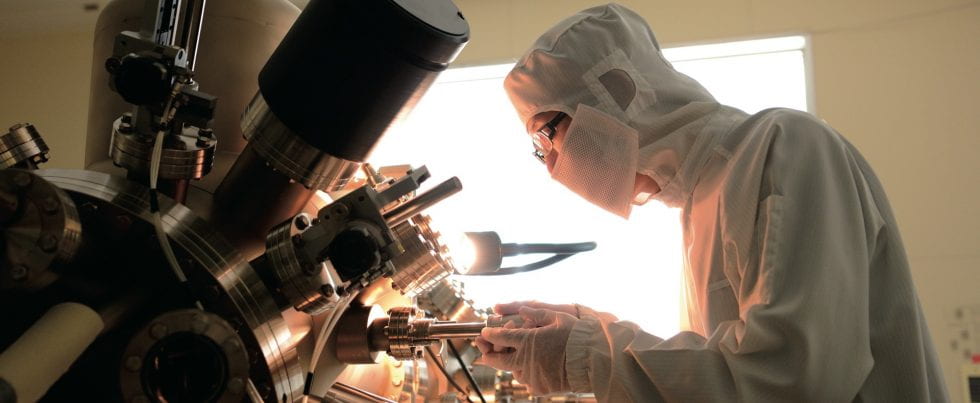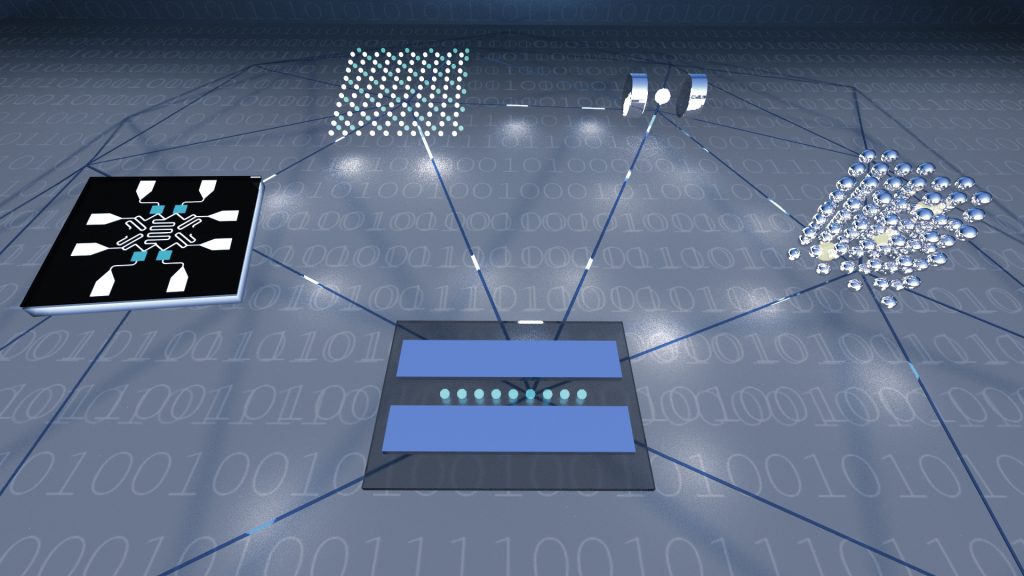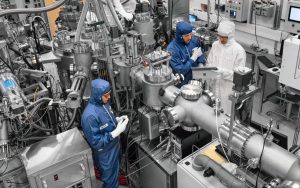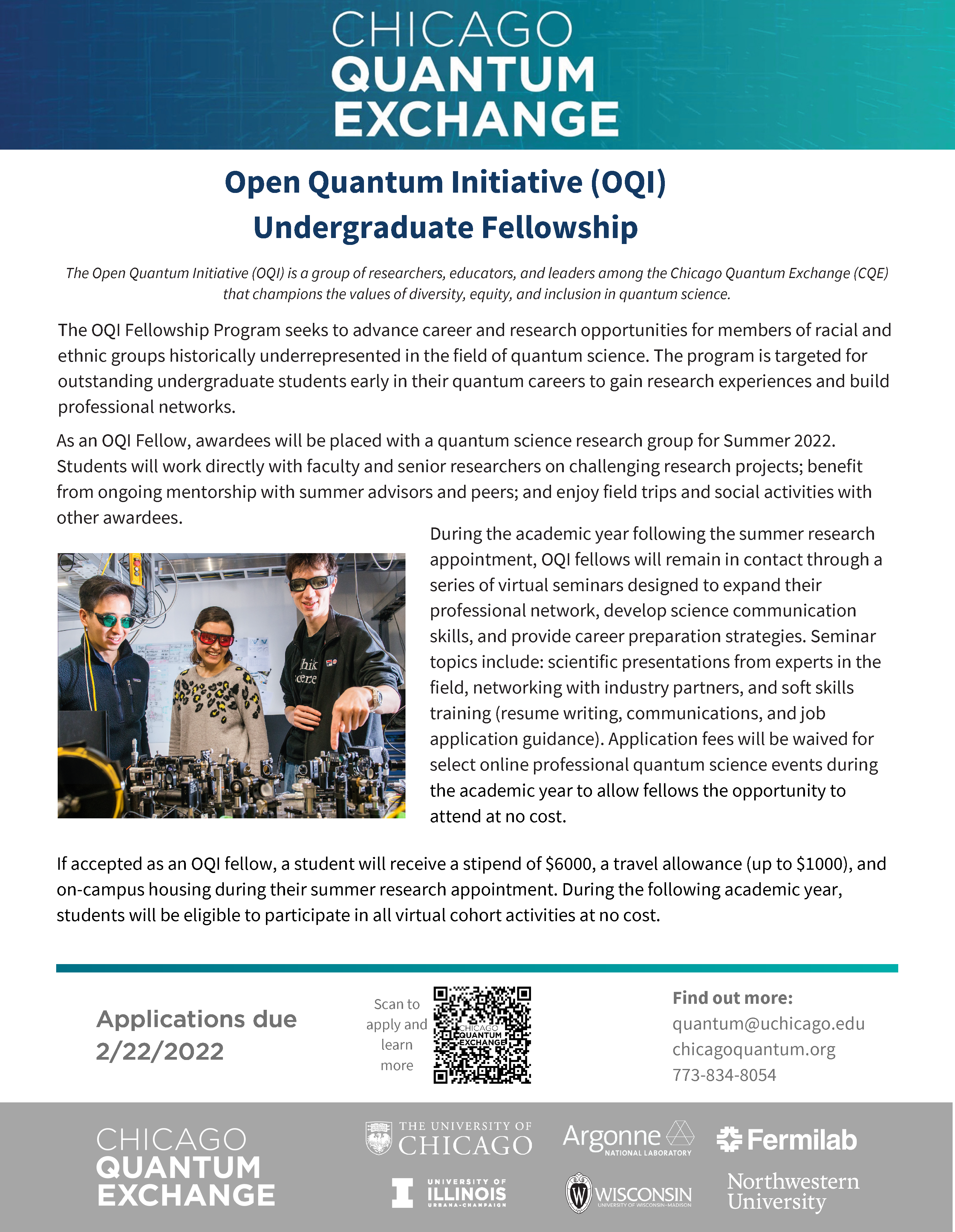CQE
Better-than-public access to the IBM Q systems for UW–Madison
As a member of CQE, WQI has now better-than-public access to the IBM Q systems (up to Guadelupe, 16 qubit system).
To find out more about how to sign up for this capability please contact Katerina Moloni.
Opening doors to quantum research experiences with the Open Quantum Initiative
This past winter, Katie Harrison, then a junior physics major at UW–Madison, started thinking about which areas of physics she was interested in studying more in-depth. “Physics is in general so broad, saying you want …
Read the full article at: https://www.physics.wisc.edu/2022/08/29/opening-doors-to-quantum-research-experiences-with-the-open-quantum-initiative/Apply now for the Open Quantum Initiative Undergraduate Fellowship
Chicago Quantum Exchange Profile: Jennifer Choy
WQI’s Jennifer Choy was recently featured as part of a series of profiles of scientists and engineers from across the Chicago Quantum Exchange member institutions. This post was originally published by CQE.
Jennifer Choy is an assistant professor of engineering physics at the University of Wisconsin–Madison who studies quantum sensing and nanophotonics. She aspires to be a great mentor to undergraduate and graduate students and encourages students to study quantum science, even if they don’t plan to go into the field.
Tell us about what you’re working on now.
We are developing miniaturized and mobile quantum sensors and engineering quantum platforms to improve their sensing performance. We are interested in two material platforms in particular: neutral atoms and solid-state color centers. Our group is applying techniques in nanoscale optics and integrated photonics to exert precise control over atom-photon interactions and miniaturize atomic sensors. We are currently developing chip-scale, near-infrared polarization optics for alkali vapor magnetometers, which could enable compact, sensitive magnetic-field-imaging devices.
How does UW–Madison help advance your work?
UW-Madison has a strong research community in quantum computing and sensing platforms and is supported by groups across many science and engineering departments. It has been very inspiring and exciting to establish relationships and collaborations with top-notch quantum researchers at UW-Madison and in the Midwest under the Wisconsin Quantum Institute and the Chicago Quantum Exchange.
How did you become interested in quantum research?
As a freshman in the Nuclear Science and Engineering department at MIT, I joined David Cory’s group, working on using liquid-state nuclear magnetic resonance as a testbed for quantum computing. I think how someone gravitates toward a field depends greatly on formative experiences and environments. I had no prior knowledge in quantum physics, but graduate students in the group were very supportive and David always graciously answered questions and offered advice, even long after I graduated. I aspire to being able to foster a similar mentoring approach and attitude.
What does the future hold for quantum technology?
The use of quantum science in sensors and sensing brings a set of tools that can promise greater sensitivity and accuracy than conventional technologies, some of which are already in use. However, to make the next leap to other practical applications outside of the lab, a combination of fundamental science research and engineering will be needed to realize functional and robust sensor systems. Broader applications would include quantum accelerometers, gyroscopes, and clocks that can provide accurate navigation solutions without the need for GPS.
Quantum technology has a workforce shortage. What would you say to a young person who is interested in studying quantum information science?
I think part of the excitement of working in the field of quantum information science is that it offers interesting research directions in almost every science and engineering discipline. Developing quantum technologies requires partnership among academia, national labs, and industry. With several federally funded quantum initiatives, job opportunities will likely open up in all these sectors.
As someone who worked in industry (as a scientist at Draper Laboratory), what I really appreciated about my training in quantum research is that I was able to apply my skills to other unrelated fields, which were just as interesting and fulfilling. Therefore, I think a quantum workforce will generate well-rounded talents that will also benefit other industries.
Chicago Quantum Exchange welcomes six new partners focused on advancing research, building a quantum economy

This story was originally published by the Chicago Quantum Exchange
The Chicago Quantum Exchange, a growing intellectual hub for the research and development of quantum technology, has added to its community six new partners in technology, finance, manufacturing, and consulting that are working to bring about and primed to take advantage of the coming quantum revolution. New corporate partners are Discover Financial Services (NYSE: DFS), Hamamatsu Photonics, Protiviti, Quantum Machines, and Super.tech. The Chicago Quantum Exchange has also partnered with P33, a private sector led non-profit dedicated to driving innovation leadership for the Chicago region.
Several of the new partner organizations —Discover, Protiviti, Super.tech and P33— have locations in Chicago, further emphasizing the city’s commitment to quantum information science and technology.
“P33 leverages Chicago’s key strengths – its diverse economy, strong system of universities and research centers, and burgeoning start-up ecosystem- to catalyze the growth of the city’s tech economy,” said Brad Henderson, founding CEO of P33. “By partnering with the Chicago Quantum Exchange, we can provide more opportunities for collaboration across traditional boundaries, attracting investment and engagement that benefits our broader community.”
Headquartered at the University of Chicago’s Pritzker School of Molecular Engineering, the Chicago Quantum Exchange is anchored by the University of Chicago, the U.S. Department of Energy’s Argonne National Laboratory and Fermi National Accelerator Laboratory (both operated for DOE by the University of Chicago), and the University of Illinois at Urbana-Champaign, and includes the University of Wisconsin-Madison and Northwestern University.
The Chicago Quantum Exchange and its partners advance the science and engineering necessary to build and scale quantum technologies, develop practical applications, and work with others to explore these possibilities. The results of these technologies – precision data from quantum sensors, advanced quantum computers and their algorithms, and securely transmitted information – will transform today’s leading industries. The addition of the new corporate partners brings a total of 18 companies into the Chicago Quantum Exchange to work with scientists and engineers at universities and the national laboratories in the region.
“The addition of new partners located here in Chicago, and from around the world, enhances our rich collaboration dedicated to advancing quantum science and engineering as well as driving quantum technologies here in Chicago,” said David Awschalom, the Liew Family Professor in Molecular Engineering and Physics at the University of Chicago, senior scientist at Argonne, director of the Chicago Quantum Exchange, and director of Q-NEXT, one of five new Department of Energy Quantum Information Science Centers. “The participation of our partners and their perspectives will help shape the scope of research and enhance our programs to develop a future quantum workforce.”
Chicago Quantum Exchange members and corporate partners engage in collaborative research efforts, joint workshops to develop new research directions, and opportunities to train future quantum engineers. The Chicago Quantum Exchange has existing partnerships with Boeing; IBM; Applied Materials, Inc.; Cold Quanta; HRL Laboratories, LLC; Intel; JPMorgan Chase; Microsoft; Quantum Design; Quantum Opus, LLC; Qubitekk; Rigetti Computing; and Zurich Instruments.
The Chicago Quantum Exchange’s newest partners include organizations ranging in interest and expertise from quantum control instrumentation and algorithms to consulting and finance.
They include:
- Discover is a leading digital bank and global payments network driven by advanced analytics and technology to meet the needs of its customers, merchants and partners around the globe. Discover aims to accelerate quantum information science applications in financial services – including advancements in anomaly detection, analytical modeling, and data security – and to develop and support scientific and engineering talent in the quantum field.
- Hamamatsu Photonics is a leading manufacturer of state-of-the-art devices for the generation and measurement of light. These devices include silicon photomultipliers, photomultiplier tubes, photodiodes, infrared detectors, spatial light modulators, cameras, and light sources. Hamamatsu is constantly working on the next generation of devices and detectors as quantum applications evolve and emerge.
- Protiviti is a global consulting firm that bridges the gap between quantum research and practical business application by preparing organizations to harness the power of quantum computing. Its technology and business consultants help businesses identify real-world examples of how they might use quantum computing and understand its value to the organization and recognize and mitigate potential risks.
- P33 catalyzes collaborations in the Chicago region’s tech ecosystem to facilitate economic growth and turn the city into an inclusive innovation leader. P33 aims to unlock the commercial potential of quantum information science from within the region by building and enhancing collaborations and translating quantum research into industry-led commercial viability.
- Quantum Machines is the creator of a first-of-its-kind complete hardware and software solution for the control and operation of quantum computers. Its standardized platforms lay the groundwork for tackling some of the largest hurdles facing quantum computing, such as complex multi-qubit calibrations, quantum-error-correction, and scaling up to many hundreds of qubits.
- Super.tech is a quantum software startup spun out of research from UChicago and incubated through Argonne National Laboratory’s Chain Reaction Innovations program. Super.tech’s software aims to close the gap from near-term quantum computers to practical applications in industries such as energy and finance.
Several of the partners have ongoing or recent engagements with Chicago Quantum Exchange and its member institutions.
The Illinois Quantum Information Science and Technology Center at the University of Illinois at Urbana-Champaign is collaborating with Quantum Machines to develop control solutions and cloud access layer, as well as other research and education programs in the center’s testbed for hybrid quantum networks.
Super.tech, a company founded by Pranav Gokhale, a recent University of Chicago computer science PhD graduate, is a member of the most recent cohort of the Argonne Chain Reaction Innovations incubator program. The company also participated in and received funding from the George Shultz Innovation Fund, a program run by the Polsky Center for Entrepreneurship and Innovation at the University of Chicago.
For some partners, engaging with the Chicago Quantum Exchange is an effort to uncover practical applications and explore the potential of quantum technology. Discover, for example, will work with the Chicago Quantum Exchange to see if they can use quantum technology large scale data analysis and fraud detection.
“Through our partnership with the Chicago Quantum Exchange, we have the opportunity to expand dramatically the scale and speed of our data analysis,” said Keith Toney, executive vice president and chief data and analytics officer at Discover. “Quantum is an example of how our recently announced data and analytics organization is embracing emerging technology to push the limits of data analytics and working with the Chicago Quantum Exchange will support that.”
Photo Caption: A Hamamatsu Photonics scientist tests optical equipment in the company’s Central Research laboratory.
Credit: Photo courtesy of Hamamatsu Photonics
Chicago Quantum Summit to foster national center collaborations, build quantum economy

By Emily Ayshford, CQE | Link to original post
Quantum technology experts from around the country will convene virtually on November 11-13 to forge new partnerships amid an exciting year for quantum research.
The third annual Chicago Quantum Summit, hosted by the Chicago Quantum Exchange, will bring together university, government, and industry leaders in the emerging field of quantum information science. The Chicago Quantum Exchange, headquartered at the University of Chicago’s Pritzker School of Molecular Engineering, is a leading national hub for the science and engineering of quantum information and for training tomorrow’s quantum workforce.
This year, the three-day virtual Summit will include presentations and discussions that focus on building collaborations between large-scale quantum research centers, companies, and innovators; fostering a quantum economic ecosystem and growing the quantum startup community; and developing a quantum-ready workforce. It will also include a public event on Nov. 12, featuring a presentation by Scott Aaronson, the David J. Bruton Centennial Professor of Computer Science at The University of Texas at Austin; and a fireside chat with Aaronson and David Awschalom, the director of the Chicago Quantum Exchange.
“The Chicago Quantum Summit will assemble leaders from across the community who are accelerating the development of quantum science and technology,” said Awschalom, who is also the Liew Family Professor in Spintronics and Quantum Information at the UChicago’s Pritzker School of Molecular Engineering and the director of Q-NEXT, a DOE quantum information science center led by Argonne National Laboratory. “This virtual event provides an opportunity to hear perspectives from the broader quantum community, to foster collaboration across large-scale initiatives, to help nurture tomorrow’s quantum engineers, and to develop the quantum economy.”
Speakers include Penny Pritzker, founder and chairman of PSP Partners and former U.S. Secretary of Commerce; Jim Clarke, director of quantum hardware at Intel; and Robert Zimmer, president of the University of Chicago, among others. The summit will also include presentations from leaders of newly announced Department of Energy and National Science Foundation-funded federal centers.
This year’s summit comes on the heels of the announcement of five new U.S. Department of Energy National Quantum Information Science Research Centers and three new National Science Foundation Quantum Leap Challenge Institutes. During the Summit, Harriet Kung, Deputy Director for Science Programs, Office of Science, U.S. Department of Energy; and Sethuraman “Panch” Panchanathan, Director, National Science Foundation; will provide their agencies’ perspectives and aims for building these centers, spanning research through education and workforce development.
Three of these eight national centers are headquartered in Illinois: Q-NEXT, led by Argonne National Laboratory; the Superconducting Quantum Materials and Systems Center, led by Fermilab; and the Quantum Leap Challenge Institute for Hybrid Quantum Architectures and Networks, which is headquartered at the University of Illinois at Urbana-Champaign.
The recent investments in quantum science by the federal government and commitments by leading technology companies support the emerging quantum ecosystem and the development and translation of new technologies. The Summit session on Nov. 13 will focus on the economic impact of quantum science and technology, opportunities to hear from the investor community, and insights into cultivating quantum startups. Penny Pritzker, who also co-chairs P33, a private sector-led nonprofit dedicated to developing the Chicago region into a leading global tech and innovation hub, will give that day’s opening keynote. A panel discussion on advancing quantum startups will include speakers Christopher Monroe, co-founder and Chief Scientist, IonQ; Chris Savoie, founder and CEO, Zapata Computing; and Jennifer Elliott, co-founder and Vice President of Business Development, QEYnet.
“Quantum science has made significant progress in recent years and there is little doubt now that quantum computers will yield transformative products,” said Monroe. “We’re seeing more and more investment and companies getting into the quantum field, but to truly support early stage quantum companies, we need greater government leadership, additional investment and a supportive ecosystem in which to grow.”
This event is open to quantum-interested leaders, researchers, and trainees across industry, universities, government, and national laboratories. Learn more about the speakers, view the agenda, and register for the live sessions on the 2020 Chicago Quantum Summit event website.
Image credit: Peter Allen
Read the full article at: https://quantum.uchicago.edu/2020/10/29/chicago-quantum-summit-to-foster-national-center-collaborations-build-quantum-economy/Q-NEXT collaboration awarded National Quantum Initiative funding
The University of Wisconsin–Madison solidified its standing as a leader in the field of quantum information science when the U.S. Department of Energy (DOE) and the White House announced the Q-NEXT collaboration as a funded Quantum Information Science Research Center through the National Quantum Initiative Act. The five-year, $115 million collaboration was one of five Centers announced today.
Q-NEXT, a next-generation quantum science and engineering collaboration led by the DOE’s Argonne National Laboratory, brings together nearly 100 world-class researchers from three national laboratories, 10 universities including UW–Madison, and 10 leading U.S. technology companies to develop the science and technology to control and distribute quantum information.
“The main goals for Q-NEXT are first to deliver quantum interconnects — to find ways to quantum mechanically connect distant objects,” says Mark Eriksson, the John Bardeen Professor of Physics at UW–Madison and a Q-NEXT thrust lead. “And next, to establish a national resource to both develop and provide pristine materials for quantum science and technology.”
UW–Madison named member of new $25 million Midwest quantum science institute
As joint members of a Midwest quantum science collaboration, the University of Wisconsin–Madison, the University of Illinois at Urbana–Champaign and the University of Chicago have been named partners in a National Science Foundation Quantum Leap Challenge Institute, NSF announced Tuesday.
The five-year, $25 million NSF Quantum Leap Challenge Institute for Hybrid Quantum Architectures and Networks (HQAN) was one of three in this first round of NSF Quantum Leap funding and helps establish the region as a major hub of quantum science. HQAN’s principal investigator, Brian DeMarco, is a professor of physics at UIUC. UW–Madison professor of physics Mark Saffman and University of Chicago engineering professor Hannes Bernien are co-principal investigators.
“HQAN is very much a regional institute that will allow us to accelerate in directions in which we’ve already been headed and to start new collaborative projects between departments at UW–Madison as well as between us, the University of Illinois, and the University of Chicago.” says Saffman, who is also director of the Wisconsin Quantum Institute. “These flagship institutes are being established as part of the National Quantum Initiative Act that was funded by Congress, and it is a recognition of the strength of quantum information research at UW–Madison that we are among the first.”
Read the full story

Chicago Quantum Exchange, including WQI, welcomes seven new partners in tech, computing and finance, to advance research and training

The Chicago Quantum Exchange, a growing intellectual hub for the research and development of quantum technology that includes the Wisconsin Quantum Institute, has added to its community seven new corporate partners in computing, technology and finance that are working to bring about and primed to take advantage of the coming quantum revolution.
These new industry partners are Intel, JPMorgan Chase, Microsoft, Quantum Design, Qubitekk, Rigetti Computing, and Zurich Instruments.
The Chicago Quantum Exchange and its corporate partners advance the science and engineering necessary to build and scale quantum technologies and develop practical applications. The results of their work – precision data from quantum sensors, advanced quantum computers and their algorithms, and securely transmitted information – will transform today’s leading industries. The addition of these partners brings a total of 13 companies into the Chicago Quantum Exchange to work with scientists and engineers at universities and the national laboratories in the region.
